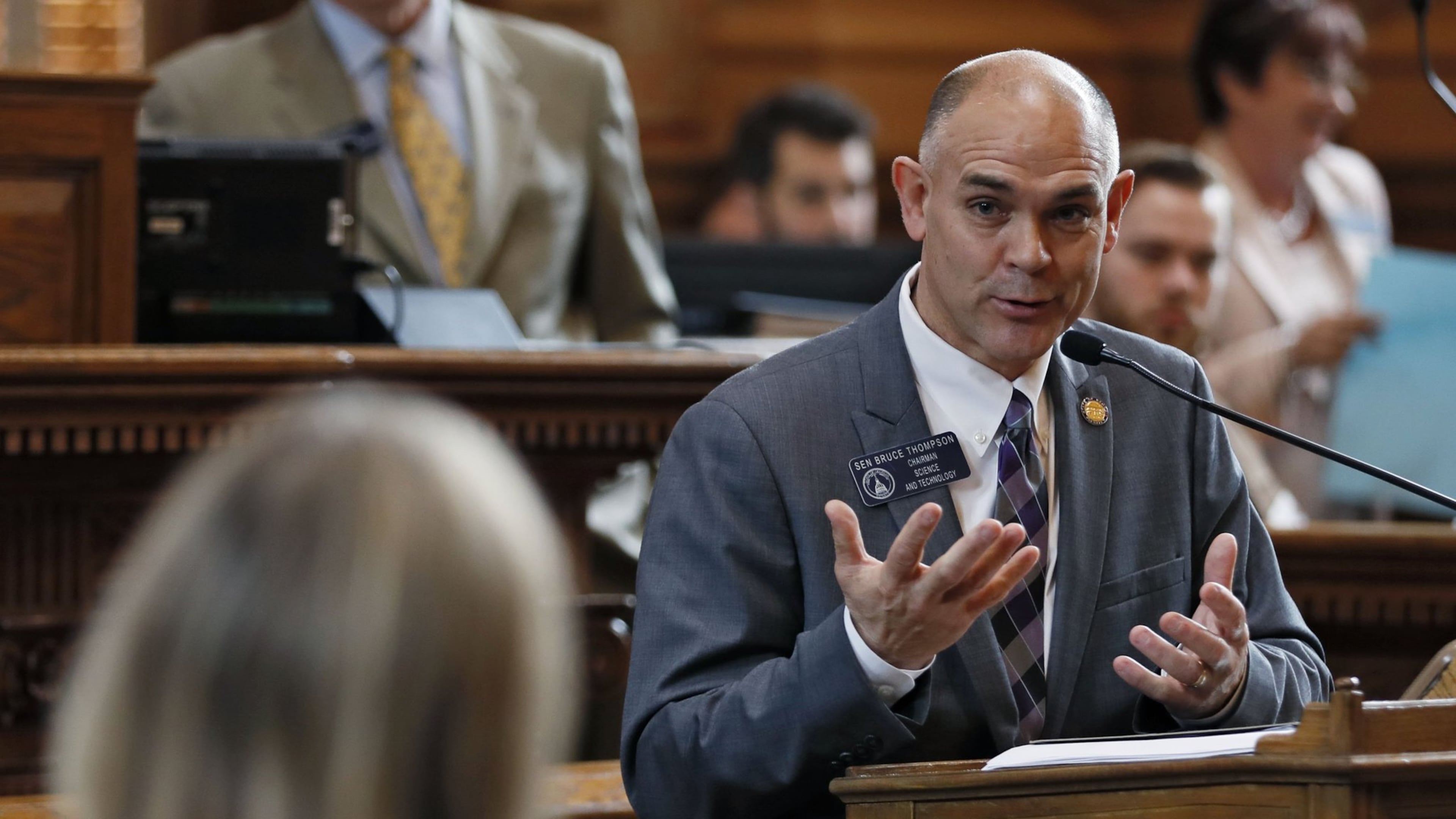Unofficial Georgia Senate panel studying systemic inequality

After the lieutenant governor opted not to appoint a panel to study systemic inequality in Georgia’s laws, the Republican senator who introduced the idea assembled a group of lawmakers, corporate executives and activists to do the work.
Led by state Sen. Bruce Thompson, an initial focus will be looking at how state laws are being applied unevenly in the criminal justice system.
While race is a focus of the task force, Thompson said there are other groups of people who are discriminated against, such as the poor and senior citizens. In the legislation, Senate Resolution 959, the panel was tasked with studying “inequalities that are suffered by identifiable groups of persons.”
“Do I believe racism exists? Yes,” said Thompson, a Republican from White. “Do I believe racism is limited to one race? No. We’re going to look at what groups of people encounter racism and discrimination — systemic and otherwise. But we’re not going to be able to move toward an environment of equal opportunity until we agree that these things exist.”
State Sen. Tonya Anderson, a Lithonia Democrat who is on the task force, said she plans to focus on the ways people are discriminated against because of their race.
Anderson sponsored Senate Bill 288, which allows some misdemeanor offenses on a criminal record to be restricted and sealed from the public. The measure passed both chambers of the General Assembly and was signed by Gov. Brian Kemp earlier this year. Anderson said the legislation removed a hurdle facing many who have recently been released from prison and are looking for employment or housing.
Thompson pointed to SB 288, which passed with unanimous support, as evidence that diverse groups can come together to improve the lives of Georgians who have been released from prison.
Of the more than 18,000 offenders released from state prisons in 2019, nearly 56% were people of color — and about 52% were Black. Nearly 55% of offenders who were imprisoned in 2019 were people of color.
State Sen. Chuck Payne, a Dalton Republican who is on the task force, said his goal is to make sure laws are applied fairly, regardless of race, class or where someone is from.
A retired juvenile probation officer, Payne said he hopes the task force looks at eliminating inconsistencies.
"Justice is justice, and whether in northwest Georgia or southeast Georgia or downtown Atlanta, the outcomes for the offenses and the penalties should be reflected the same way,” he said.
The group has met once already, and Thompson is planning to hold a second meeting in early October.
Making up the task force are three Republican and five Democratic senators, executives from four large corporations — including Georgia Power — the commissioner of the Department of Juvenile Justice, the director of the legal aid group Georgia Justice Project and the executive director of the conservative grassroots group Faith and Freedom Coalition.
The Faith and Freedom Coalition and Thompson have both been vocal supporters of so-called “religious liberty” legislation aimed at keeping the government from interfering with religious beliefs. Gay rights groups and other opponents say religious liberty bills amount to legalized discrimination, where a business owner can turn someone away if the customer does not align with the owner’s religious beliefs.
Thompson and Faith and Freedom Coalition Executive Director Timothy Head said they do not plan to use the study group to push a religious liberty bill.
“Is that something I support personally? Yes,” Thompson said. “With this task force? No.”
State Sen. Zahra Karinshak, a Duluth Democrat who is on the task force, said while she disagrees with Thompson’s support of religious liberty, she believes his heart is in the right place.
“Maybe I’m being naive, but until somebody gives me a reason to not trust what they’re doing or to not believe that they’ve got goodwill in their heart, I’m not going to question them,” she said.
So far, the task force looks as though it will continue the work Nathan Deal did during his tenure as governor in overseeing an overhaul of the state’s criminal justice system. That included changes such as reducing certain nonviolent felonies to misdemeanor offenses and implementing accountability courts for drug offenders or people who missed child support payments.
DJJ Commissioner Tyrone Oliver said he looks forward to lending his more than 20 years of law enforcement experience to making sustainable change. For example, he said he believes there’s room to reevaluate the way probation is applied — lifting restrictions after an offender has met a certain set of requirements.
Thompson said he hopes the group will look at possible changes such as not stripping professional licenses from people convicted of nonviolent crimes or creating employment opportunities for people recently released from prison.
Head said he hopes Georgia can implement something similar to Texas' Prison Entrepreneurship Program. Through that program, eligible offenders learn about commerce and skills such as how to form a business plan.
“This is about breaking the cycle of recidivism,” Thompson said. “That’s my ultimate goal.”
But it all begins with acknowledging the discrepancies in how the state’s laws are applied to different people in Georgia, Payne said.
“There are prejudices that we bring to the table — we all have them. And that’s the first thing you need to admit,” Payne said. “We need to make sure we can admit that and work through it and then make sure we’re doing the right thing across the state.”



